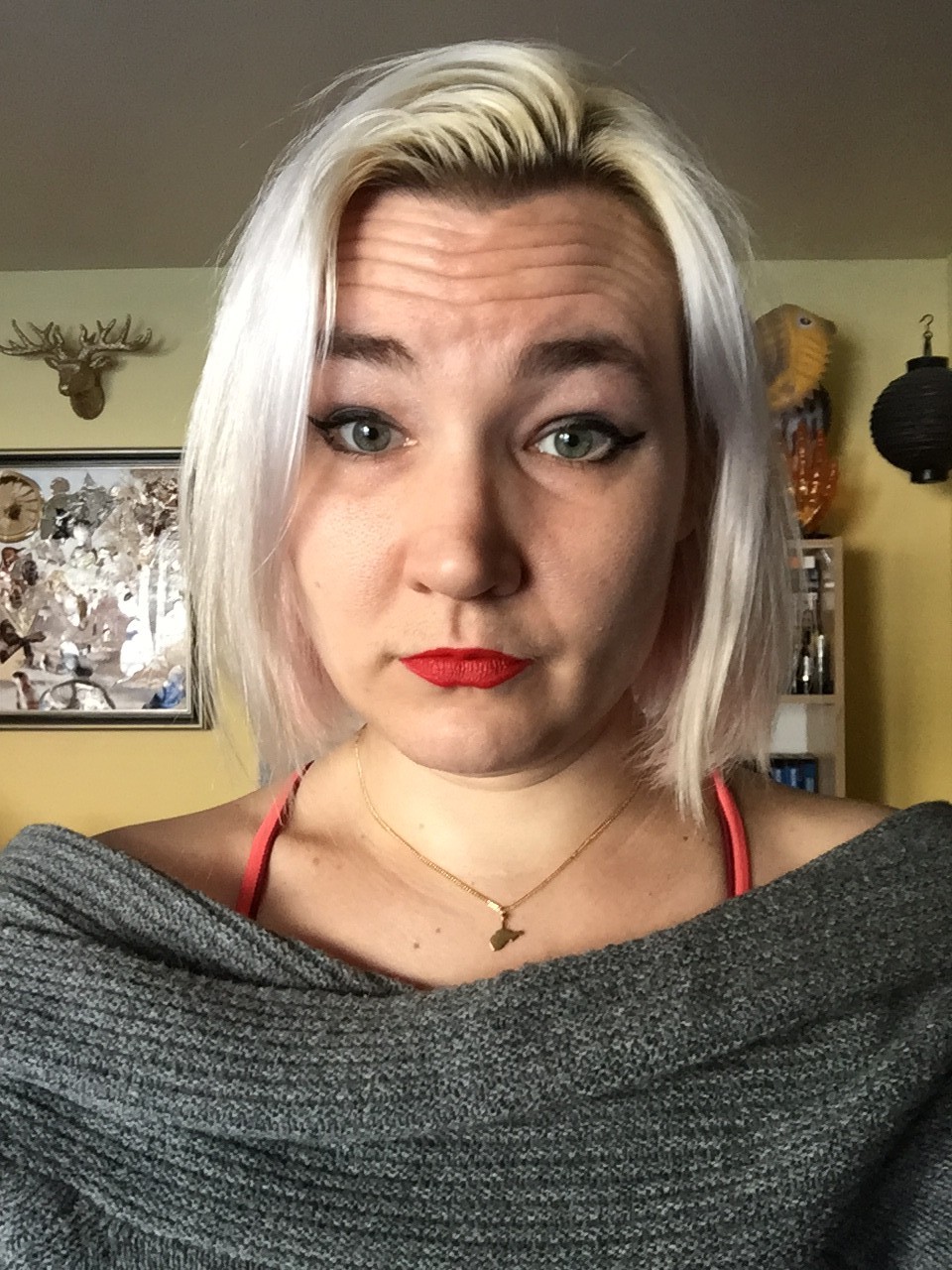ISSN: 1941-4137
POETRY THAT ENACTS THE ARTISTIC AND CREATIVE PURITY OF GLASS
POETRY THAT ENACTS THE ARTISTIC AND CREATIVE PURITY OF GLASS

Jessie Janeshek's second full-length book of poetry is The Shaky Phase (Stalking Horse Press, 2017). Her chapbooks are Spanish Donkey/Pear of Anguish (Grey Book Press, 2016), Rah-Rah Nostalgia (dancing girl press, 2016), Supernoir (Grey Book Press, 2017), Hardscape (Reality Beach, forthcoming), and Auto-Harlow (Shirt Pocket Press, 2018). Invisible Mink (Iris Press, 2010) is her first full-length collection.
Also by Jessie Janeshek:
The Shaky Phase
Invisible Mink
Spanish Donkey/Pear of Anguish
Rah-Rah Nostalgia
Supernoir
Auto-Harlow
We Bathe the World/Bathhouse Pageant
Success is all hollow I wear big purple glasses
and your dirty sheet like a toga.
I’m not leaving the steam.
I’m not leaving the electronic massage torture chamber
but you can send me a message on the elevator
via machine:
walk back to your cabin/someone will kill you so they can go live there.
Haunted jazz babies haunt best in hog pink
but I dream of the smell of the old yellow phonebook
I dream of a high chair, playing school
crushed velvet hollow add risk and suspense
lavender jabbering Al Capone grabbing
my ass on a bench. That bird is hoarse.
I can hear owls from town
and I feel your claws your namesake steps
and down my back your slap-lack of narrative
your slimy kiss.
You’re eating an apple and I’m afraid
of tight jockey shorts the fake rattle snake
stuffed with the light stuff and how do I come across
above and beyond and below all the blondes
and the breasts that make war
and there’s always been orange and range
and there’s always been ballistic missiles
muscles and hunger no teeth
and now I just notice because I love him
and now I just fuck in the backroom
at The Vapors and weep for the last of the Hollywood meteors
then you lower me down wrapped in loose bloody towels to the cooling room.
I wrote “We Bathe the World/Bathhouse Pageant” while I was an artist-in-residence at Hot Springs National Park, Arkansas. Hot Springs is unique because the town itself — including the ornate late nineteenth- and early twentieth-century bathhouses that make up Bathhouse Row — is part of the park. I was eager to explore the history of the town, and I became more excited when I discovered the tawdry past of Hot Springs; in the first few decades of the twentieth century it was a hangout for gangsters, movie and theatre stars, and drunken baseball players on spring training. My work frequently engages with the jazz age and/or 1920s and 1930s Hollywood, so what I learned at Hot Springs dovetailed nicely with my long-time obsessions and gave me some new fodder. Additionally, while touring the Fordyce Bathhouse, I got to examine artifacts of the “therapies” that had been offered at that time, some of which looked more like torture to me, and a bit of that imagery pervades the poem as well.
Glass: A Journal of Poetry is published monthly by Glass Poetry Press.
All contents © the author.
All contents © the author.





